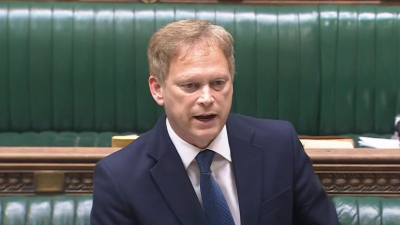Industry Disruption and Regulatory Pressures Prompt Google to Reevaluate Timeline
In a move that has sent ripples through the digital marketing landscape, Google announced a significant delay in its plans to phase out third-party cookies. The decision, which comes in response to mounting regulatory concerns and industry feedback, marks a pivotal moment in the ongoing evolution of online privacy and data governance.
With over a decade of experience covering tech industry developments, I've witnessed firsthand the seismic shifts in digital advertising and privacy regulations. Google's decision to postpone the cookie phase-out underscores the complex interplay between technological innovation, consumer privacy rights, and regulatory oversight.
The original plan, unveiled in 2022, aimed to eliminate third-party cookies from its Chrome browser by 2023. This ambitious timeline was met with a mix of anticipation and apprehension from advertisers, publishers, and privacy advocates alike. However, as the deadline drew near, it became increasingly apparent that the transition would require more time and careful consideration.
The postponement comes amid growing scrutiny from regulators worldwide, who have raised concerns about the potential anti-competitive effects of Google's proposed alternative, the Privacy Sandbox. Critics argue that Google's dominance in online advertising could be further entrenched by its control over this new framework, exacerbating concerns about market concentration and consumer choice.
Moreover, the delay reflects the intricate technical challenges involved in developing viable alternatives to third-party cookies. While Google has made strides in experimenting with alternative tracking mechanisms within its Privacy Sandbox, such as Federated Learning of Cohorts (FLoC), concerns persist regarding their efficacy, scalability, and impact on user privacy.
In response to these challenges, Google has opted to extend the timeline for phasing out third-party cookies by nearly two years, with the new deadline set for late 2025. This decision affords stakeholders additional time to adapt to the changing landscape and provides Google with an opportunity to address lingering concerns through further collaboration and transparency.
However, the delay raises questions about the broader implications for the digital advertising ecosystem. Advertisers and publishers reliant on third-party data for targeting and measurement may face continued uncertainty and disruption, prompting a renewed focus on first-party data strategies and alternative advertising channels.
Moreover, the regulatory scrutiny surrounding Google's privacy practices shows no signs of abating. Antitrust investigations and legal challenges from both domestic and international regulators underscore the need for robust safeguards to protect consumer privacy and promote fair competition in the digital marketplace.
As Google navigates these challenges, stakeholders across the industry must remain vigilant in advocating for responsible data practices and fostering innovation in privacy-preserving technologies. The postponement of the cookie phase-out represents a pivotal moment in shaping the future of online advertising, one that requires careful deliberation and collaboration among all stakeholders involved.
In conclusion, Google's decision to delay the phase-out of third-party cookies reflects the complex interplay of regulatory pressures, technological innovation, and market dynamics shaping the digital advertising landscape. As the industry grapples with these challenges, it is imperative to prioritize consumer privacy rights, promote fair competition, and foster innovation to ensure a more transparent, equitable, and sustainable digital ecosystem.
In conclusion, Google's decision to postpone the phase-out of third-party cookies underscores the intricate challenges facing the digital advertising ecosystem. The delay reflects a recognition of the complex interplay between regulatory pressures, technological innovation, and market dynamics shaping the future of online privacy and data governance.
While the extended timeline provides stakeholders with additional time to adapt and collaborate, it also highlights the ongoing need for robust safeguards to protect consumer privacy and promote fair competition. As the industry navigates these challenges, it must prioritize transparency, accountability, and responsible data practices to ensure a more equitable and sustainable digital ecosystem for all stakeholders involved.
Ultimately, the postponement of the cookie phase-out represents a pivotal moment in the evolution of online advertising, one that necessitates continued dialogue, collaboration, and innovation to address the multifaceted challenges ahead. By working together, stakeholders can shape a future where privacy, transparency, and innovation coexist harmoniously, fostering trust and confidence in the digital marketplace.






